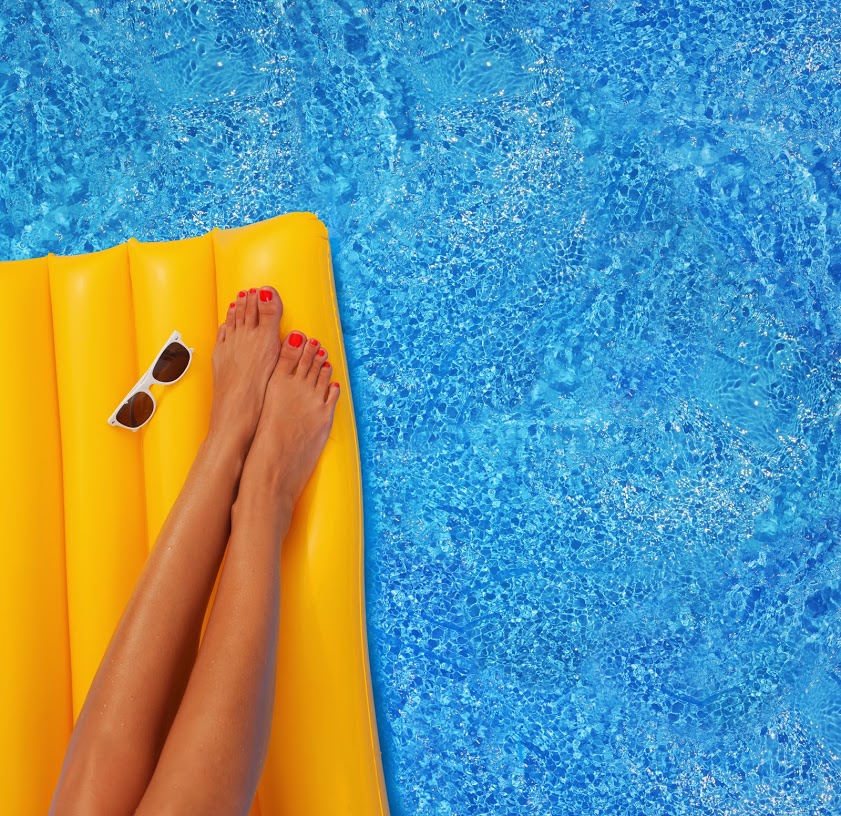
Swimming provides plenty of benefits. This low-impact exercise keeps you cool when the weather heats up and provides soothing relaxation. Unfortunately, the chlorine that keeps pool water clean can negatively affect the skin by removing natural oils and causing dryness, damage, and even premature aging. If you’re a frequent swimmer, take these steps to shield your complexion from this chemical impact.
Wash Before and After Swimming
Take a shower before getting in the pool. Although this may seem counterproductive, wet skin won’t absorb as much chlorine as dry skin. This step is especially important if you’re swimming after a workout. Sweat on the skin reacts with the chlorine to create a damaging chemical called chloramine.
When you leave the pool, rinse your body in clear, fresh water. Keep the temperature cool to avoid further drying of the skin. You should also lather with a gentle cleanser to remove chemical residue from your skin without causing irritation.
Apply Protective Oil
A natural moisture barrier can keep the chlorine from seeping into your pores. Sunscreen can serve this purpose if you’re swimming outdoors. When swimming indoors, try castor oil, flaxseed oil, or coconut oil. For long swimming sessions, you may need to reapply to maintain protection.
Spray With Vitamin C
A homemade vitamin C solution can neutralize the chlorine and limit its damaging effects. Dissolve one teaspoon of ascorbic acid or sodium ascorbate into a cup of distilled water and spray this solution on your skin after swimming. Throw out the leftovers, though; this solution is only good for about 24 hours.
If you are concerned about existing skin damage caused by chlorine and other environmental irritants, make an appointment at The Dermatology Clinic in Baton Rouge to learn more about corrective anti-aging treatments. Call (225) 769-7546 today to speak with a team member.
